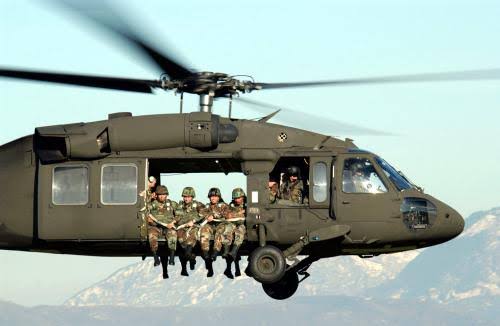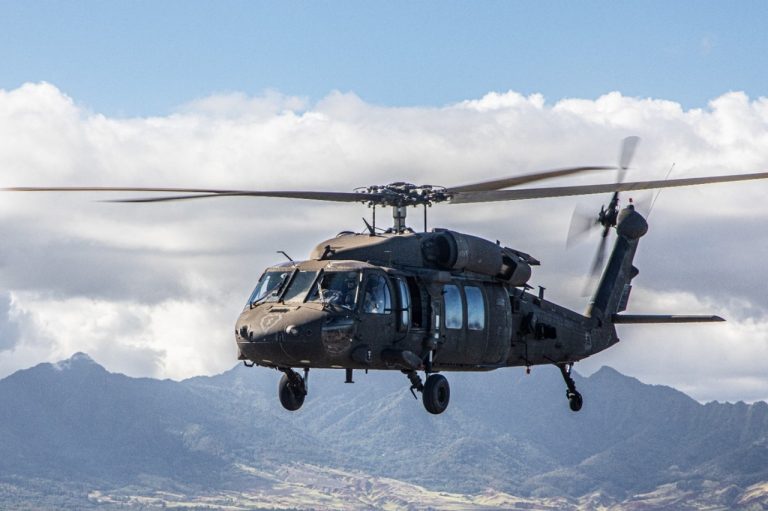UH 60 Black Hawk: Trick Functions and Technologies
UH 60 Black Hawk: Trick Functions and Technologies
Blog Article
The Duty of Aircraft in Forming Worldwide Transport and Trade Dynamics
The evolution of aircraft has actually indelibly transformed global transportation and profession characteristics, promoting extraordinary degrees of connectivity and performance. Through the facility of durable air freight networks, services can now navigate worldwide markets with impressive speed and dexterity, thereby redefining supply chain methods. Nonetheless, this transformation is not without its difficulties, as the air travel market comes to grips with sustainability concerns and regulative pressures. As we check out the diverse influences of airplane on worldwide profession, it is necessary to consider exactly how these factors will shape the future landscape of aeronautics and its role in the economy.

Development of Air Transport
The development of air transport has actually been noted by substantial technological innovations and developments that have actually changed the method individuals and items cross the globe. From the Wright brothers' very first powered flight in 1903 to the advancement of supersonic jets, each milestone has actually emphasized the ruthless search of efficiency and speed in air traveling. Early aircraft were primarily primary, limited by engine power and structural honesty. The introduction of innovative materials and aerodynamics in the mid-20th century led to considerable renovations in aircraft performance, dependability, and safety and security.
The last component of the 20th century saw the development of industrial aeronautics as a feasible mode of transport, characterized by the introduction of jet engines, which changed air travel by dramatically reducing flight times. The rise of air freight in parallel with traveler services has additionally emphasized the flexibility of aviation.
Effect On Global Trade
Air transport has actually exceptionally improved global trade by helping with the swift activity of products throughout substantial ranges. This expedited logistics ability enables organizations to respond rapidly to market demands, consequently improving supply chain effectiveness. The capability to move perishable products, high-value things, and time-sensitive items has opened up brand-new markets and chances for different markets, significantly influencing profession patterns.
Additionally, the growth of air freight networks has actually promoted globalization, making it possible for firms to resource products and products from different parts of the globe perfectly. This interconnectedness minimizes lead times and prices, enabling companies to continue to be affordable in an increasingly global industry. In addition, air transportation plays an important duty in e-commerce, where consumer expectations for rapid shipment have driven a surge sought after for air cargo services.
The influence of aircraft on global profession includes the creation of strategic profession paths, connecting areas and facilitating global partnerships. Countries that buy air transportation infrastructure often experience improved financial development and boosted international straight investment. On the whole, the advancement of air transport has not just changed the logistics landscape yet has also come to be a crucial component in the dynamics of global trade.

Economic Benefits of Aeronautics
A robust aeronautics industry produces substantial financial advantages, contributing to job development, tourist, and overall economic growth - uh 60. The aeronautics sector sustains numerous work worldwide, varying from direct work in flight terminals and airlines to indirect roles in sectors such as hospitality, transport, and logistics. According to market reports, for each job in the aeronautics market, roughly 3.5 extra work are developed in the more comprehensive economic climate
Tourism is a crucial element of the financial benefits originated from air travel. Flight helps with worldwide tourist, enabling travelers to check website here out varied destinations, which in turn boosts regional economies. Countries that buy their air travel framework typically experience increased traveler arrivals, bring about greater investing on solutions such as hotels, destinations, and restaurants.

In addition, aeronautics boosts international connection, allowing businesses to access new markets and resources efficiently. This connectivity fosters international trade, enabling for the quick movement of goods, which is vital in today's globalized economic situation. Because of this, sectors such as shopping and manufacturing advantage exceptionally from reputable air transport, more driving financial growth. Overall, the air travel market continues to be a foundation of financial vigor, underscoring its essential function in forming modern economic climates.
Obstacles Encountering the Aeronautics Sector
Navigating a complicated landscape of governing, environmental, and financial challenges, the aviation sector faces significant hurdles that endanger its sustainability and development. Rules surrounding security and protection are continuously developing, requiring recurring conformity and adaptation from producers and airlines (uh 60). This can bring about raised functional expenses and source allotment that takes away from innovation and growth initiatives
Additionally, environmental problems have become paramount, with growing analysis over carbon emissions and environmental pollution. The industry is under stress to adopt greener methods and technologies, which commonly need substantial financial investment in research study and development. Balancing these environmental responsibilities with the need for air travel presents a considerable difficulty.
Financial variations, such as rising gas costs and geopolitical unpredictabilities, further complicate the landscape. Airline companies regularly grapple with unpredictable operating expenses and varying guest demand, which can influence productivity and long-term planning. Labor shortages and skill voids in vital areas include one more layer of intricacy, hindering functional efficiency.
Eventually, attending to these multifaceted challenges is essential for the aviation market to preserve its essential function in international transportation and profession, while making certain strength and versatility in a significantly open market.
Future Fads in Flight
Shifting and emerging technologies customer preferences are poised to improve the future of air travel dramatically. The assimilation of expert system and artificial intelligence is expected to enhance functional performance, improve airport More hints procedures, and enhance customer service. Predictive analytics will promote more accurate need projecting, enabling airlines to optimize flight timetables and rates models.
Sustainability is ending up being a key vehicle driver in flight, with the aeronautics industry progressively focused on decreasing carbon emissions. Developments in airplane design, such as electrical and hybrid propulsion systems, are being checked out to meet environmental targets. Additionally, the fostering of lasting aviation fuels (SAFs) is expected to play a crucial duty in achieving net-zero emissions by 2050.
Customer preferences are shifting in the direction of individualized traveling experiences. Airline companies are purchasing advanced data analytics to customize solutions and enhance client engagement, making sure a more tailored journey from scheduling to arrival. Furthermore, the surge of remote work might result in boosted demand for leisure traveling, as individuals look for to incorporate job and getaway.
Conclusion
The advancement of air transport has changed global profession, yielding considerable economic advantages while likewise offering difficulties that require critical management. The continuous adaptation of the aeronautics industry will be essential for sustaining its contributions to the global economy.
The last component of the 20th century saw the emergence of business aviation as a sensible setting of transport, identified by the intro of jet engines, which reinvented air travel by significantly reducing trip times. The surge of air cargo in parallel with guest services has actually even more emphasized the convenience of aviation. Additionally, air transportation plays a vital duty in e-commerce, where consumer assumptions for fast delivery have actually driven a rise in demand for air freight services.
In general, the he said development of air transportation has not only transformed the logistics landscape yet has additionally end up being an important element in the characteristics of worldwide trade.
Sustainability is coming to be a key motorist in air traveling, with the air travel industry progressively focused on lowering carbon emissions.
Report this page